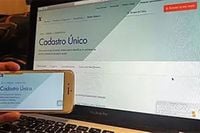A new initiative aimed at enhancing social inclusion is now available for families registered in the Cadastro Único (CadÚnico) in Brazil. Dubbed the Telefone Popular 2025, or Acesso Individual de Classe Especial (AICE), this program allows eligible users to secure a landline phone service at a significantly reduced cost, addressing the needs of those in vulnerable social situations.
The Telefone Popular 2025 offers registered users the ability to contract a landline for just R$ 15 per month, which includes 90 minutes of local calls to other landlines. Should users exceed this limit or wish to call mobile phones or long-distance numbers, they can easily add credits to their plan. This initiative is part of a broader effort to ensure that low-income families have access to essential communication services.
To qualify for the Telefone Popular 2025, individuals must be registered in CadÚnico with updated information. This registration is crucial as it serves as a gateway to various social programs. Interested parties should visit their local Centro de Referência de Assistência Social (CRAS) to ensure their details are current. Once registration is confirmed, the family head must contact their local telephone service provider, armed with their Social Identification Number (NIS) and CPF. If the CPF is not linked to CadÚnico, alternative documents such as a voter registration card or the Registro Administrativo de Nascimento Indígena (RANI) may be required.
Participating telephone operators include CTBC Telecom, Oi, Telefônica/Vivo, and Sercomtel, with specific contact numbers provided for each service. After the application is approved, installation of the service can occur within seven days, making it an accessible option for those in need.
Moreover, maintaining an updated CadÚnico registration is vital for families to continue receiving benefits like the Telefone Popular 2025. Families can manage their registration through the Meu CadÚnico portal, where they can check their information, update details, and monitor their applications.
CadÚnico, managed by the Ministry of Development and Social Assistance (MDAS), has proven to be a pivotal tool for social inclusion in Brazil. Established to assist low-income populations in accessing government programs and benefits, it collects data to efficiently allocate resources to those who need them most. While many Brazilians are familiar with popular programs like Bolsa Família and Minha Casa, Minha Vida, there are numerous other benefits available to those registered.
For instance, one lesser-known advantage of CadÚnico is the access to free literacy and professional training courses through the Programa Nacional de Acesso ao Ensino Técnico e Emprego (PRONATEC). These courses aim to enhance skills and improve job prospects for beneficiaries, effectively paving the way toward economic independence. The government’s commitment to social inclusion is reflected in the ease with which individuals can enroll in these programs, although it is essential for families to remain vigilant about available opportunities in their regions.
Another vital benefit offered through CadÚnico is the Tarifa Social de Energia Elétrica, which provides discounts of up to 65% on monthly electricity bills for qualifying low-income families. To be eligible for this discount, families must have an average monthly consumption of no more than 220 kWh. This program not only alleviates financial pressure on families but also promotes responsible energy usage, allowing savings to be redirected towards other essential needs like food, health, and education.
Additionally, CadÚnico facilitates access to the Carta Social service, enabling users to send letters for a nominal fee of just R$ 0.01. This initiative is particularly beneficial for individuals residing in remote areas or those without easy access to traditional postal services. By offering this communication tool, CadÚnico not only addresses financial support but also fosters connections among families and communities.
To access the benefits provided by CadÚnico, such as PRONATEC courses, the Tarifa Social de Energia Elétrica, and the Carta Social, families must ensure their registration is up-to-date. This process typically involves visiting a CRAS or other designated service points in their municipalities, where they will need to present documents like their CPF or voter registration card, along with proof of residence. Families with a monthly per capita income of up to half the minimum wage or a total income of up to three minimum wages are eligible to register, making CadÚnico an inclusive program for various demographics, including homeless families, family farmers, quilombolas, and indigenous populations.
As the CadÚnico continues to serve as a vital entry point for numerous opportunities and services, it is essential for families to remain informed about the benefits available to them. Knowledge is the first step toward change, and by leveraging the resources provided through CadÚnico, families can aspire to a brighter future.
In summary, the Telefone Popular 2025 and other benefits under CadÚnico represent significant strides towards social equality and support for Brazil's most vulnerable populations. By ensuring access to essential services, the government aims to uplift families and foster a more inclusive society.






